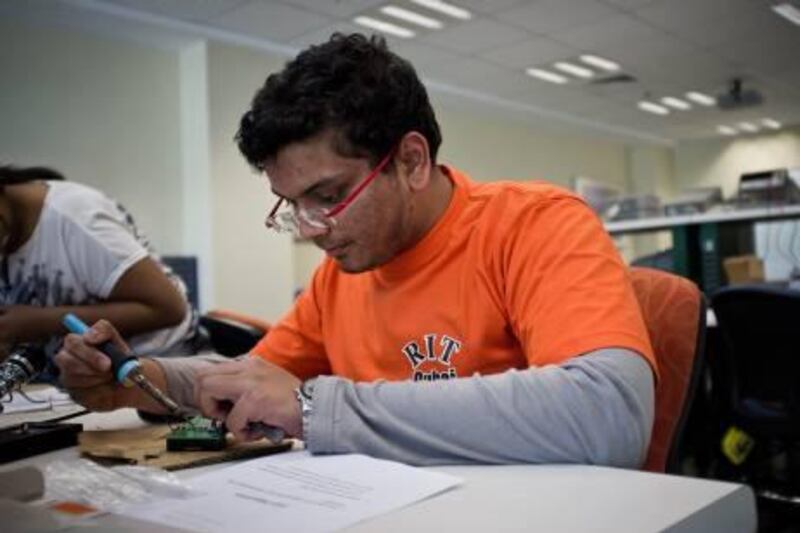DUBAI // The Rochester Institute of Technology's Dubai branch opened a new campus in the emirate's technology park yesterday, which it hopes will help it make a dent in the crowded university market place.
It will allow the students to move out of the temporary office space they have been using up to now, into a purpose-built facility with 15 classrooms and laboratories. When finished it will hold around 600 students.
Inaugurated by the Minister of Higher Education and Scientific Research, Sheikh Nahyan bin Mubarak, the campus is located in the Silicon Oasis technology park, which funded it.
Dr Mohammed Al Zarouni, the chief executive of Silicon Oasis, said the campus was a long-term investment in the park's future. "This university has experience especially in electrical and mechanical engineering, which is the reason why we approached them to come to Silicon Oasis," he said. "They will support the vision of where we're going."
The campus is awaiting ministry approval for five undergraduate degrees, including computer security and international business. "More degrees will help attract more students," said Prof Mustafa Abushagur, the head of the Dubai campus. "We felt there was a lot of interest in the market for these new programmes."
In time, it hopes to add a master's degree in engineering management.
The institute opened in Dubai in 2008, in the midst of the economic crisis. That, admitted the university president, Dr William Destler, made recruitment a challenge.
Launching with only graduate degrees, two years ago it opened its doors to undergraduates, which he said had made a significant difference - although it still has only 200 students, compared with 16,000 at the home campus in America.
The institute is not alone in struggling for numbers in a city with 52 private universities. Only last year Michigan State University closed its undergraduate school after only two years and now focuses exclusively on its two graduate programmes.
But Dr Destler is unconcerned. "In the last two years the numbers have grown quite rapidly. We predict 700 students will be enrolled in the next two to three years and 1,000 in the next five," he said.
Dr Warren Fox, the head of higher education at the Knowledge and Human Development Authority, Dubai's regulator, is also convinced there is room for universities to grow.
"The population of the UAE is now around eight million, and a good percentage of those are working expats with families who want a good education. There is still a lag in catching up with this increasing demand."






